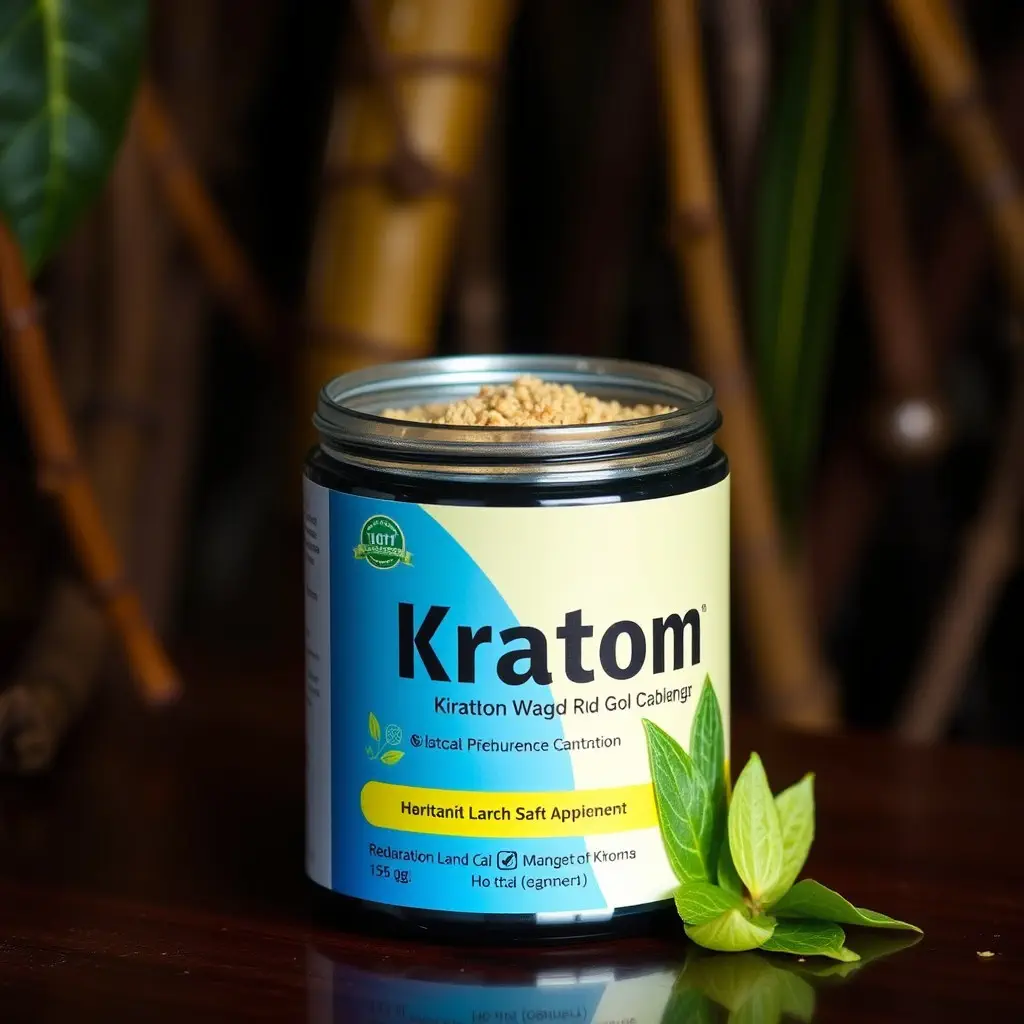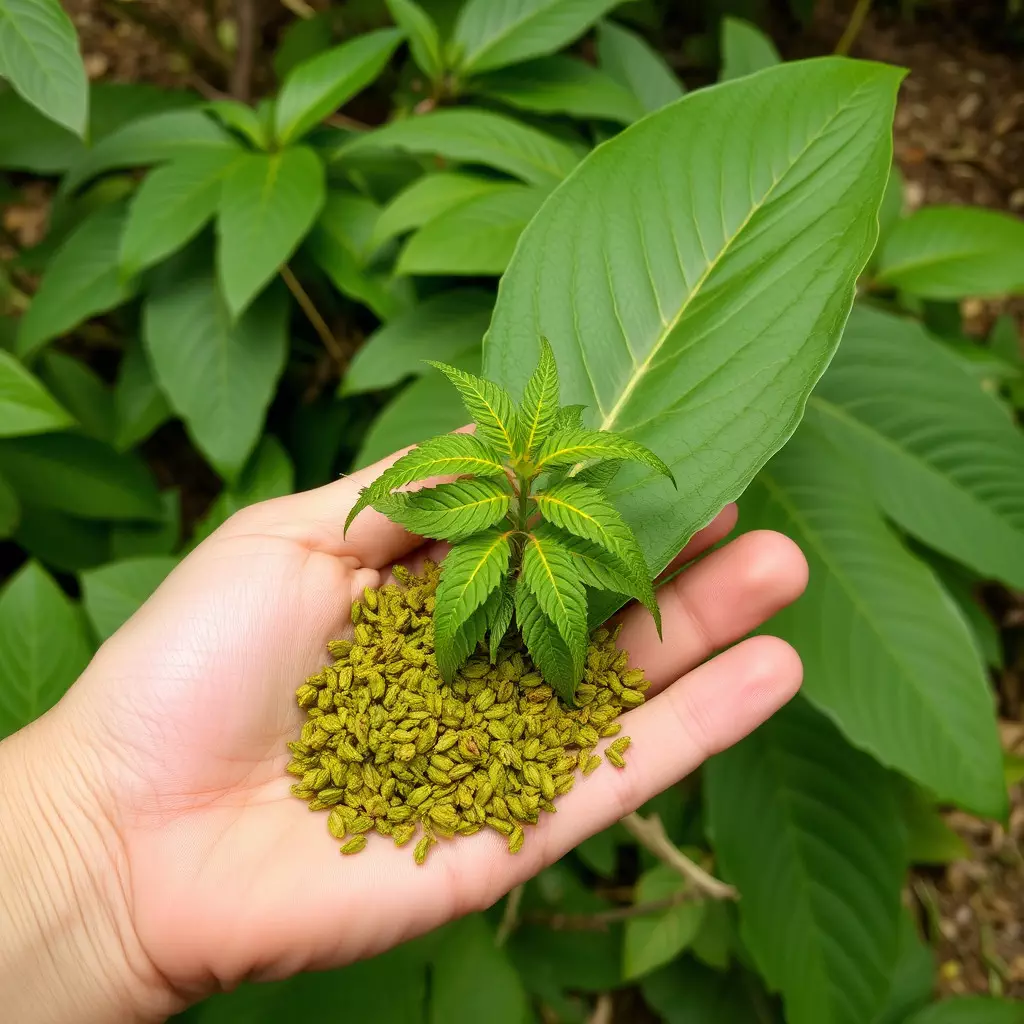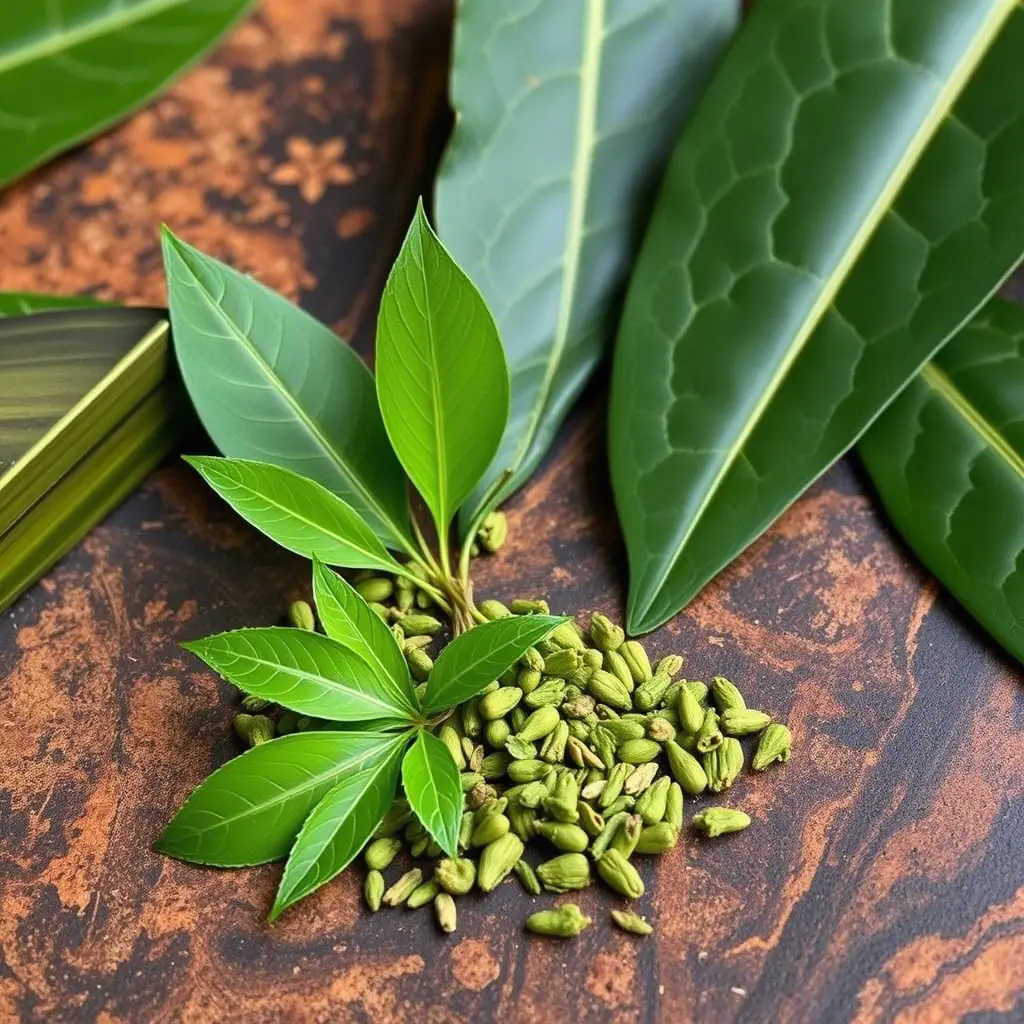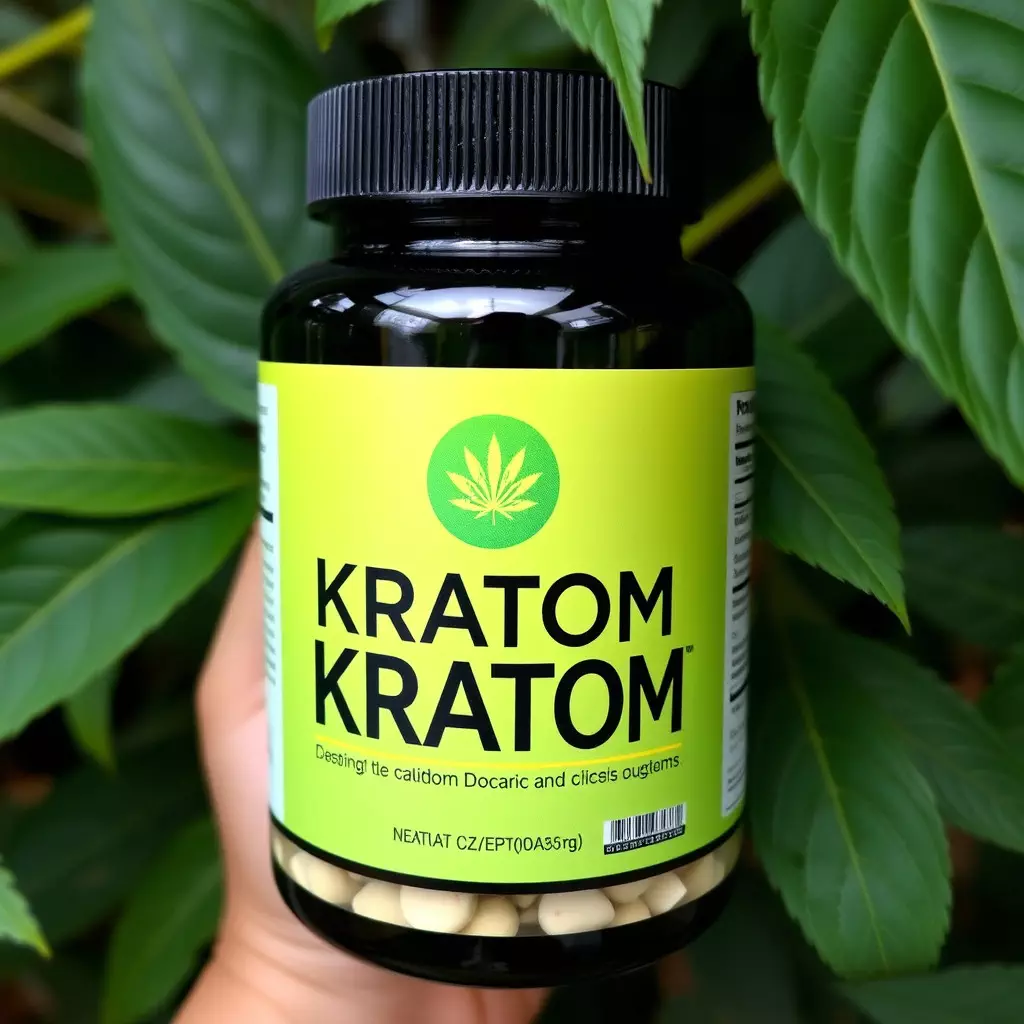Kratom, a Southeast Asian tree, has been studied for its neuroprotective properties, particularly its potential to combat oxidative stress and inflammation in the brain. Its primary alkaloids, mitragynine and 7-hydroxymitragynine, have shown to enhance the brain's antioxidant defenses, protecting against cellular damage from free radicals. These compounds also exert anti-inflammatory effects that are beneficial in addressing inflammation linked to neurodegenerative diseases and other brain conditions. The dual action of these alkaloids suggests kratom could be a valuable therapeutic option for conditions influenced by both oxidative stress and inflammation, offering significant neuroprotection benefits. Ongoing research continues to explore the full extent of kratom's potential in maintaining neural integrity and function.
exploring the neuroprotective benefits of kratom, this article delves into its anti-inflammatory and antioxidant properties, particularly as they relate to mitigating oxidative stress and inflammation within the brain. Kratom’s unique alkaloids have been shown to play a significant role in maintaining brain health, offering insights into their protective effects against neural damage and promoting a balanced cerebral environment. The discussion will highlight the mechanisms by which kratom contributes to oxidative stress reduction in neural tissues, shedding light on its potential therapeutic applications for neuroinflammation and oxidative stress-related conditions.
- Unveiling the Neuroprotective Potential of Kratom: Reducing Oxidative Stress and Inflammation in the Brain
- Kratom's Anti-Inflammatory Alkaloids and Their Role in Brain Health
- Mitigating Cerebral Damage: How Kratom Contributes to Oxidative Stress Reduction in Neural Tissues
Unveiling the Neuroprotective Potential of Kratom: Reducing Oxidative Stress and Inflammation in the Brain

Kratom, a tropical evergreen tree native to Southeast Asia, has garnered attention in scientific circles for its potential neuroprotective benefits. Studies indicate that kratom may exert a protective influence on the brain through its anti-inflammatory and antioxidant properties. Oxidative stress, characterized by an imbalance between free radicals and antioxidants within cells, can lead to cellular damage and is implicated in various neurodegenerative disorders. Kratom’s alkaloids, including mitragynine and 7-hydroxymitragynine, have been shown to modulate oxidative stress responses by enhancing endogenous antioxidant defense systems, thereby reducing the harmful effects of free radicals in the brain. Furthermore, these compounds also possess anti-inflammatory capabilities that can help mitigate the inflammation associated with neurodegenerative processes. The dual action of kratom against oxidative stress and inflammation suggests a promising avenue for research into its neuroprotective benefits, offering hope for potential therapeutic applications in managing conditions where these factors play a significant role.
Kratom's Anti-Inflammatory Alkaloids and Their Role in Brain Health

Kratom, a plant from Southeast Asia with leaves that contain a variety of alkaloids, has been the subject of increasing interest in the realm of neuroprotection. Among its diverse alkaloid profile, mitraphyne and 7-hydroxymitraphyne stand out for their significant anti-inflammatory properties. These compounds have been shown to modulate inflammation, a key driver of oxidative stress and a contributing factor to numerous neurological conditions. By targeting the inflammasome pathways, kratom’s alkaloids may offer a protective effect against the brain’s inflammatory responses. This action is critical in maintaining cognitive function and preventing neurodegeneration.
Furthermore, the potential of kratom’s anti-inflammatory alkaloids extends to their role in reducing oxidative stress, another mechanism implicated in the aging process and various neuropathological states. Oxidative stress occurs when there is an imbalance between free radicals and antioxidants within cells. Kratom’s alkaloids may help mitigate this imbalance by scavenging free radicals and enhancing the body’s natural antioxidant defenses, thereby promoting overall brain health. This dual action of anti-inflammatory and antioxidative effects could be beneficial for individuals seeking to protect their neurological well-being or manage conditions associated with inflammation and oxidative stress in the brain.
Mitigating Cerebral Damage: How Kratom Contributes to Oxidative Stress Reduction in Neural Tissues

Kratom, a plant originating from Southeast Asia, has garnered attention for its potential neuroprotection benefits, particularly in the context of reducing oxidative stress and inflammation in the brain. Oxidative stress, characterized by an imbalance between free radicals and antioxidants within cells, can lead to damage in neural tissues, contributing to a range of neurological disorders. Alkaloids present in kratom leaves, such as mitragynine and 7-hydroxymitragynine, have been studied for their antioxidative properties. These compounds exhibit the ability to neutralize free radicals, thereby mitigating cerebral damage that could stem from oxidative stress. The anti-inflammatory effects of kratom are also noteworthy. Chronic inflammation in the brain is a common feature in numerous neurodegenerative diseases and traumatic injuries. Kratom’s anti-inflammatory actions, likely mediated through various signaling pathways, can help regulate the immune response within the brain, potentially offering protection against conditions that are characterized by an inflammatory component. The therapeutic potential of kratom in promoting neuroprotection is an area of ongoing research, with preclinical studies suggesting that this natural substance may have a role in safeguarding neural integrity and function against oxidative damage and inflammation.
The evidence presented underscores the neuroprotective potential of kratom, a plant-based compound with significant anti-inflammatory and antioxidative properties that can safeguard brain health. By modulating oxidative stress and inflammation in the cerebral environment, kratom holds promise for its role in preserving neural integrity and function. Future studies are warranted to fully elucidate the mechanisms by which kratom exerts its beneficial effects, paving the way for innovative therapeutic strategies in neurodegenerative diseases and other brain-related conditions.






